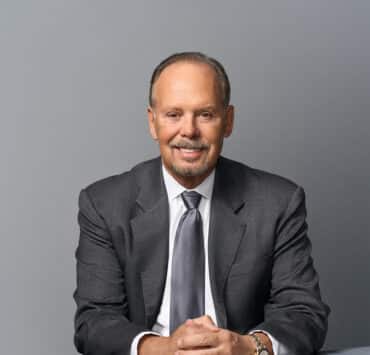|
Getting your Trinity Audio player ready...
|
Melissa Uribes has never been a fan of the term talent acquisition. “I don’t think it’s about acquiring people,” she muses. “I think it’s really about presenting opportunities where people can contribute, grow, be part of the organization, and feel challenged.”
As vice president of talent, diversity, equity, and inclusion at Trimble, Uribes does not want employees to simply pass through the doors on their way to something else; she wants to be a driving force, helping to grow their careers as a part of the Trimble organization.
Trimble is an industrial technology company based out of Westminster, Colorado. Uribes has been there for seven years, having transitioned into her new VP role two years ago. Uribes stresses the importance of such a forward-thinking brand: she utilizes her position to ensure Trimble and its technology are well known within different communities.
“We’re not a flashy company,” she says. “We speak up intentionally. Our company is very focused on digital transformation because we work with some of the most important industries in the world right now. Our technology solutions are making the world more efficient, safer, and more effective at providing positive outcomes.”
In today’s world, food supply is a topic of importance and farming is a profession that is struggling to attract next-gen workers—but Uribes says Trimble’s technological endeavors can shift that narrative.
“Your company is only as good as your people.”
Melissa Uribes
“These are actually very technologically sophisticated industries, and Trimble is at the forefront of bringing that tech to those industries. It’s not old farming, or construction—there’s technologically enabled ways to do the work and it’s a pretty rewarding job if you want to be in tech and do something that makes a bigger difference in the world.”
One new initiative takes forward-thinking to a new level: the introduction of a talent and recruiting platform technology is one way Trimble is working to “cast a wider net” for candidates who would otherwise get lost in the shuffle. “Historically, companies look at a résumé and are often looking for a specific profile of a person who has been successful in that job,” Uribes explains. “This can often lead to unconscious bias because we’re only looking for candidates that have the same background, same experiences, and same types of education that we’ve seen for many years.”
By using a cutting-edge, well configured technology platform, rather than focusing on a specific profile, we can search for skills that may come from a variety of unique candidate experiences and combat unconscious bias.
“We, of course, still use interviews to meet the candidates and make selections,” she continues, “and the addition of new technology is increasing our ability to identify a broader range of diverse talent pools.”
Entrepreneurial even at a young age, Uribes constantly imagined being in business. “I always thought that I was going to go start a product, invent something, or buy a small business and do really well with it.” Understanding the importance of experience and wanting to learn from her seniors, Uribes began working for several large corporations.
“We’re not a flashy company. We speak up intentionally.”
Melissa Uribes
She worked a variety of HR roles, from benefit program management to recruiter to labor relations. She was pleased to find that she was particularly skilled when it came to partnering with businesses to help them understand the “people side” of their business strategies, and it fostered the innovation and entrepreneurial mindset she craved early on.
“Your company is only as good as your people,” she says. “If you don’t have a strategic focus on how you create positive experiences for the people who work for you, then I don’t think your business can be successful in the long run.”
Uribes is savvy both in people and business, and under her leadership DEI has begun partnering with those whose full-time mission includes helping to represent low-income and underrepresented communities. One partner is ActivateWork, a nonprofit recruiting, training, and coaching firm based out of Denver, Colorado.
“We’ve been very proud to be a strong partner of theirs,” the VP says. “One of the things we did was sponsor a class where they took nontraditional applicants and put them through an eighteen-week training program, and now we’re hiring a subset of those candidates within Trimble. They’re starting at the end of this month in July. We’re excited to have these employees join Trimble!”
Collaborating is what Uribes does; she loves it. “In my work, sometimes I’m helping an executive, sometimes it’s a front-line manager, sometimes it’s a new employee. I don’t think there are many positions like HR where you get the opportunity to get to know people from A to Z.” So, it’s no surprise that her leadership style is one that hinges on two equal parts, the first being collaboration. “In order for people to follow you, they have to feel like they’re a part of it with you. A lot of people in leadership are tasked with implementing changes. The only way to get through change is by being really collaborative.”
The second part? Communication. “You have to communicate frequently—but it’s not always easy,” Uribes says. “Some people respond differently; some people require different forms of communication. But I think it’s key. You’re never going to over-communicate; I don’t think that exists.”
“It’ll be really important to figure out the balance between leveraging technology while not losing the importance of the ‘people connection.’”
Melissa Uribes
As a Latina, Uribes says the lack of opportunities and the disparity gaps within the community still discourage her. “My dad is Mexican American. He immigrated to the US. My mom was a multigenerational Latina in the US. It’s personal to me because, like everyone, I want my kids and grandkids to have opportunities and not be limited based on access, income, or education.” This, says Uribes, is what motivates her every day in leading Trimble in powerful new initiatives designed to help their company reflect the diversity of global groups as well as those within their own communities.
When asked how she manages to push through adversity and opposition, Uribes stresses the need for vision and resilience. “If you know where you want to go, you can make a plan to get there. It won’t always be easy, but if you’re resilient you can keep going.”
Uribes credits her parents with teaching her this skill. “I had amazing parents,” she says. “They’ve been my heroes in so many ways. They raised me and my siblings to be intentional and very resilient. That resiliency I learned at home, but also in business. It takes time.” Uribes says she once heard an interview in which Jennifer Lopez simply said, “Keep going.” The sincerity of the phrase resonated with her.
“I’ve always liked that,” Uribes says, laughing. “You have hard days and you have really great days too. You just have to keep going. A motto I share with my teams is to focus on ‘relentless progress forward’: as long as we’re moving forward, we should be proud of our work on any given day.”
That’s exactly what Uribes plans to do. The VP says technology isn’t going anywhere in future. “It’ll be really important to figure out the balance between leveraging technology while not losing the importance of the ‘people connection.’ I’d love to continue exploring how companies can do that really well.”

